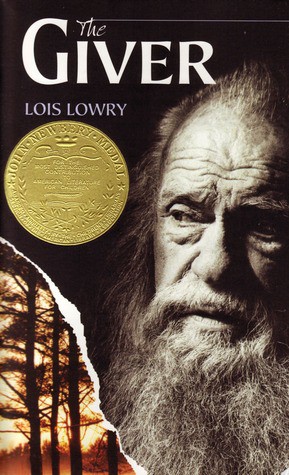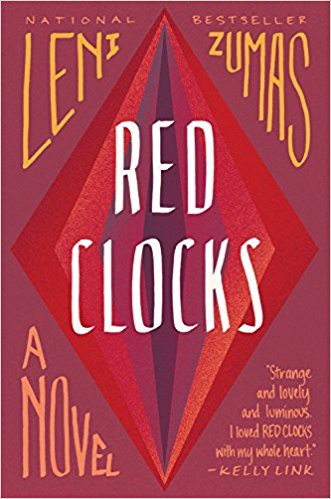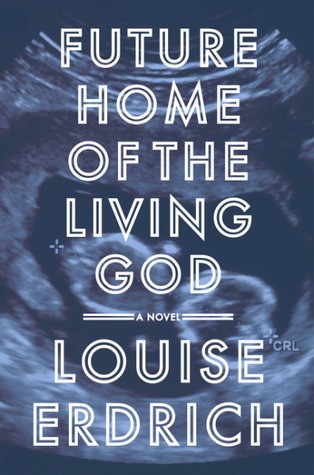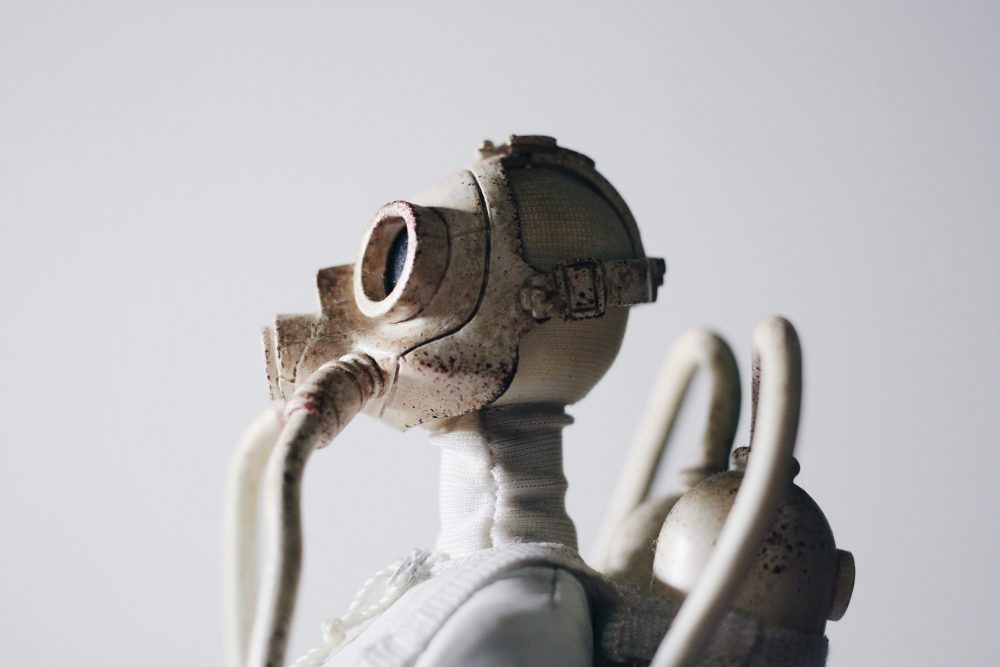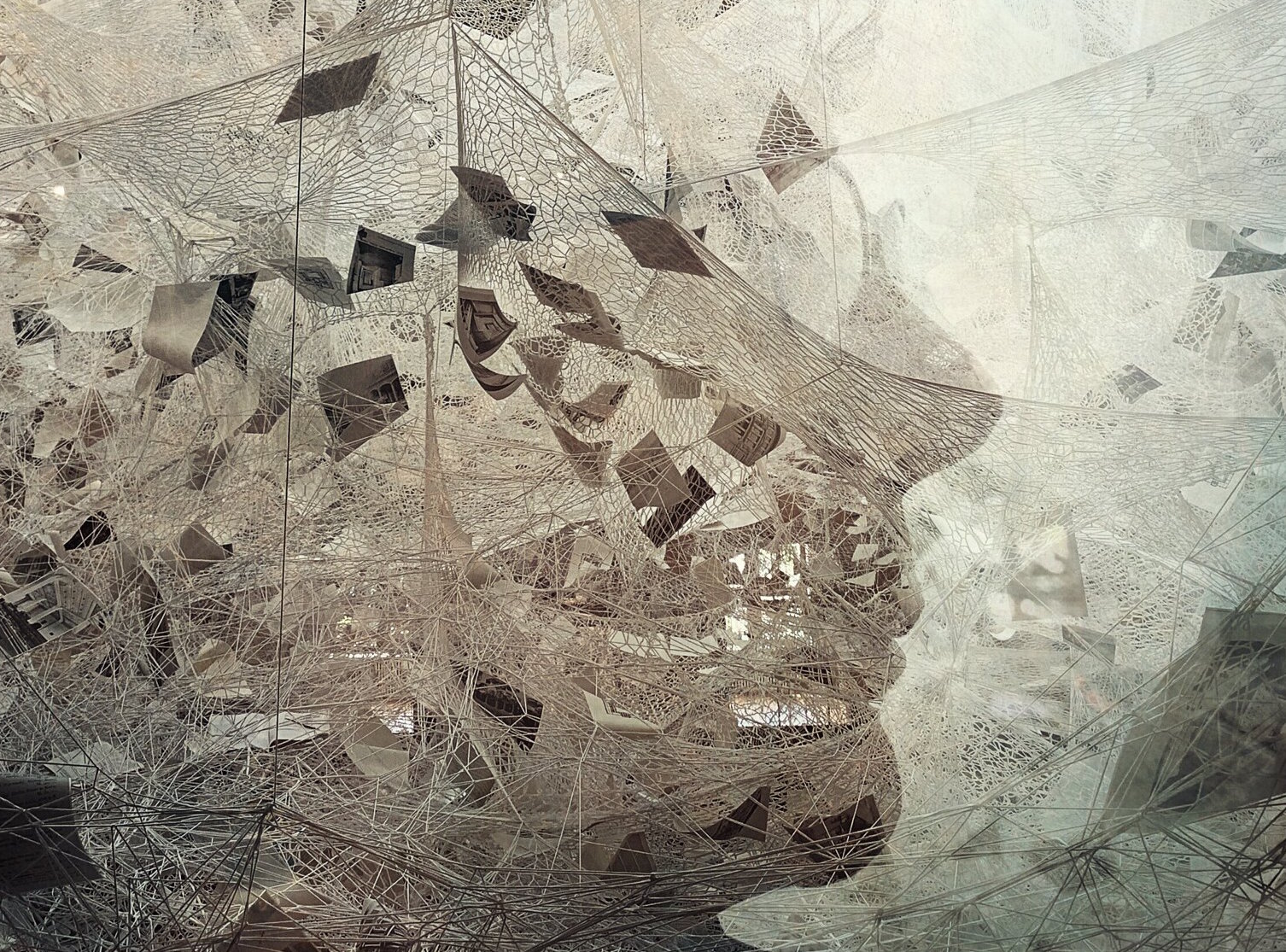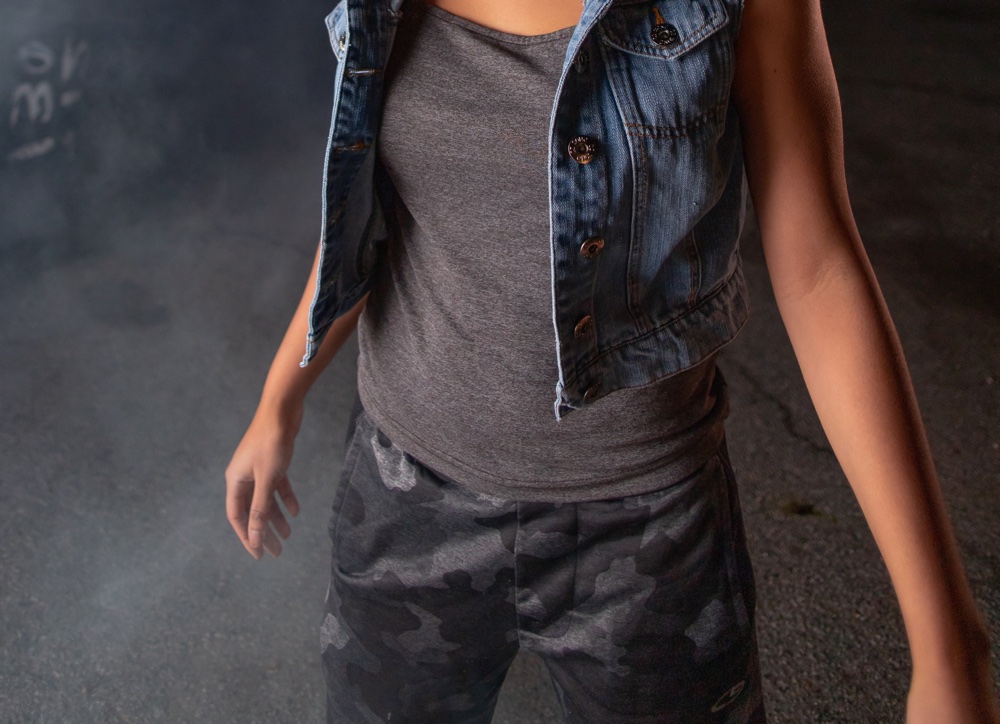Reading Lists
10 Unpleasantly Plausible Books About Dystopian America
Speculative fiction that imagines how it could (and probably will) get worse

The president of the United States has yet to prove that he understands the difference between fiction and reality—but in our current moment, who can blame him? Well, okay, we can all blame him, because it’s his fault. But it’s hard for all of us to deal with news that sounds sometimes like a horror story, sometimes like a biting satire on hypocrisy.
This July 4th, we wanted to take a closer look at some American dystopias that are starting to feel uncomfortably close to real life. Dystopian stories — those stories that hinge on new societal structures upheld by militaristic, destructive mechanisms — are written by authors who are inherently horrified by the world they have to live in. But to recreate that horror writ large in a speculative future, they have to think deeply about and truly understand our present—and maybe that’s where our fight against total annihilation lives. Can we learn something about living in—and even making our way out of—an unbelievable dystopia from the writers who’ve envisioned the worst?
Parable of the Sower by Octavia Butler
It’s 2025 and Lauren Olamina lives with her family in a safer neighborhood on the outskirts of a Los Angeles descending into violent anarchy. The Olamina family is trying to preserve and protect a culture being ravaged by drugs, disease, and water shortages. Her father is a preacher who tries to rally the community around faith, and Lauren is an empath who can literally feel the suffering engulfing her neighborhood. A devastating fire thrusts Lauren into the heat of the disaster, and she forms community with other refugees and becomes a prophet for a different future waiting for them all up North. Parable of the Sower is uncomfortably close in many ways to our present, and reading it can shed light on how empathy can save and doom us today.
The Giver by Lois Lowry
The supposedly utopian society of The Giver has made pain and unhappiness disappear by choosing “Sameness” over depth and difference. But everything changes for twelve-year-old Jonas when he is chosen to become the next Receiver of Memories. He alone will bear the memories of the time before Sameness, because even this utopia realizes that maybe “those who cannot remember the past are doomed to repeat it.” It’s a lot for a twelve-year-old boy to handle, and spoiler alert: he has a lot of complicated emotions about the ambiguities of good and evil, right versus wrong, and his role negotiating the past and future.
Red Clocks by Leni Zumas
Now that Supreme Court Justice Kennedy is set to retire at the end of July (a swing vote for women’s rights, among many other vital issues) this dystopia is another one that feels close to home. Abortion is illegal, fetuses have rights, and in-vitro fertilization has been banned. Five woman navigate the new reality — women who want to have babies alone but can’t, women who don’t want to have babies and might, and women who help women honor their bodies above and against the law.
Future Home of the Living God by Luise Erdrich
A lot of dystopian fiction centered on women has something to do with reproduction. Future Home of the Living God envisions a future where women begin to give birth to ever more primitive versions of the human species. The human race seems to be devolving and (surprise) it’s all women’s fault. Our protagonist Cedar Hawk Songmaker, is a woman who is four months pregnant and desperate to protect her unborn, so she returns to her birth mother, an Ojibwe woman living on the reservation, to understand her and her baby’s origins in an effort to avoid the threat of disappearing in the state being overrun by martial law.
The Road by Cormac McCarthy
More post-apocalyptic than dystopian, we had to include this one for a very specific reason. Cormac McCarthy became a father later in life. In a hotel room in El Paso, Texas he thought about what the landscape would look like in 50 and 100 years, and then worried about his inability to protect his son in the future. We are living in a country that is working hard to ensure that the unbelievable nightmare will be a reality for refugee parents and their children, so it feels like an apt time to descend into a post-apocalyptic novel where a father and son struggle to survive in a scorched and barren landscape post-catastrophe.
The Lathe of Heaven by Ursula K. Le Guin
Written in 1972, the novel takes place in 2002. Portland is overcrowded by millions of people, it’s always raining, and the poorest are suffering from protein deprivation. George Orr wakes up one day to discover his dreams have altered the reality he and the rest of his fellow Oregonians are living in. (Thank goodness that part isn’t so plausible, since we’ve all been having some doozies about North Korea.) When he consults a psychotherapist to defuse his powers, he slowly realizes the psychotherapist has his own motives for getting involved.
When She Woke by Hilary Jordan
The veil of separation between church and state has been cast off, and the criminal system has given way to literal color code of discrimination. Felons are no longer “rehabilitated” but instead are genetically “chromed” so that the color of their skin reflects the severity of the crime they’ve been charged with. There’s also a sexually transmitted infection which has left most women sterile (again, the dystopia=women+fertility theme?) and in the new Christian state, Roe v. Wade has been overturned in an effort to “save” the country. (Ha ha! Science fiction!) But when Hannah becomes pregnant after an affair with the reverend Aidan Dale, she has an illegal abortion to protect him from the shame of her pregnancy and wakes up in jail, chromed the color red for murder. It’s a critical retelling of the Scarlet Letter on the eve of Trump’s potential appointments to the Supreme Court.
The Power by Naomi Alderman
Alderman imagines a dystopian future where pussy grabs back with a freaking vengeance. In the near-future world, young women everywhere are suddenly gifted with the physical power to violently overtake and even kill those who go against them. Sounds pretty utopian, but Alderman challenges an invisible pattern of behavior that bell hooks also calls out in her book The Will to Change: “When culture is based on a dominator model, not only will it be violent, but it will frame all relationships as power struggles.” It’s a cultural problem. How can women leverage the toxic violence of the patriarchy without revitalizing patriarchy’s forcefulness?
The Stepford Wives by Ira Levin
This one is so hauntingly believable, Jordan Peele used it to inspire his all-too believable dystopian horror in Get Out. The Stepford Wives was written in 1972 as a kind of satirical horror story about the fictional town of Stepford, Connecticut, where the talented photographer Joanna Eberhart moves with her husband. Joanna isn’t prepared for the plastic suburbia she falls into. The women she meets are doll-like — perfect bodies, demure sensibilities, and mindless. She does some digging and discovers that all the women in the town were once political agitators, revered intellectuals. Is suburban culture insidiously brainwashing them? Or is the toxin actually environmental — something in the water? How will she avoid becoming one of them?

Gold Fame Citrus by Claire Vaye Watkins
Because, unbelievably, we still can’t get everyone to believe that climate change is real , here’s some fiction that speaks the truth. All the allure of the California Dream (gold, fame, citrus) has literally dried up. The Amargosa Dune Sea is a shifting sand mass eating up most of the Southwest. The state tried to propagandize water infrastructure efforts years ago, but it didn’t work. Now, Luz Dunn is 25 and living in a mostly evacuated Los Angeles where rain never comes. When she and her boyfriend Ray find/kidnap a toddler named Ig, the struggle for survival takes on a name and small little shape with more urgency than Luz and Ray were ready for.





